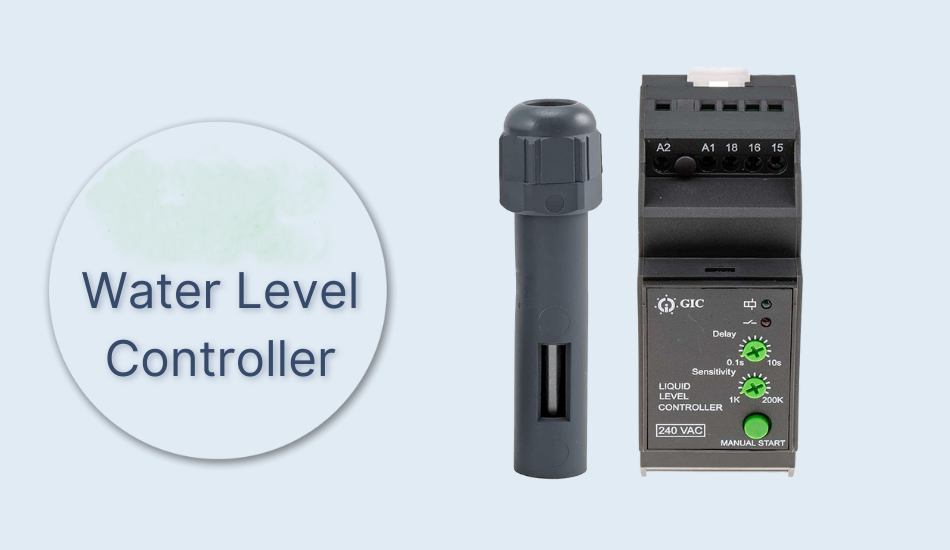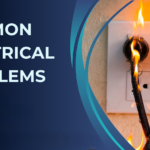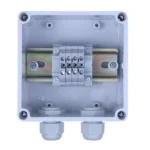Electronic liquid level controllers offer several benefits over traditional mechanical float switches, making them a preferred choice in many industrial and commercial applications. Here’s a comparison highlighting the key advantages of electronic liquid level controllers:
1. Higher Accuracy and Precision:
- Electronic Liquid Level Controllers: These controllers typically offer higher accuracy because they use electronic sensors (e.g., ultrasonic, capacitive, radar) that provide continuous and precise measurements of liquid levels. They can be programmed to detect very small changes in liquid levels, ensuring better control.
- Mechanical Float Switches: Float switches can have a slower response time and less precision, especially in turbulent or sloshing liquids, since they rely on the physical movement of the float within the tank. This can lead to less accurate level measurement, particularly in large or irregularly shaped containers.
2. No Moving Parts:
- Electronic Liquid Level Controllers: Since electronic controllers use sensors instead of mechanical floats or moving parts, they are less prone to wear and tear. This makes them more durable and reliable over time, reducing the need for maintenance and part replacement.
- Mechanical Float Switches: Float switches have moving parts that can wear out over time due to constant motion or contact with the liquid. These moving components can be prone to failure, especially in corrosive or abrasive environments.
3. Better for Aggressive or Hazardous Environments:
- Electronic Liquid Level Controllers: These controllers are better suited for use in aggressive, hazardous, or high-pressure environments because the lack of moving parts makes them less vulnerable to chemical or mechanical damage. Additionally, they can be designed to handle extreme temperatures, pressures, or corrosive liquids.
- Mechanical Float Switches: Float switches are more susceptible to damage in harsh environments, especially when exposed to chemicals, high pressures, or extreme temperatures. The moving float mechanism may corrode or get stuck, leading to unreliable operation.
4. Flexible and Adjustable:
- Electronic Liquid Level Controllers: These controllers are highly configurable and can be adjusted to meet specific needs, such as defining set points, alarm thresholds, or output actions. They can also be integrated with other automation systems, such as SCADA, for remote monitoring and control.
- Mechanical Float Switches: Float switches have limited adjustability. The switch is often designed to operate at a fixed level and cannot be easily adjusted once installed. Any changes to the system would require physical modifications or the replacement of the switch.
5. Remote Monitoring and Control:
- Electronic Liquid Level Controllers: These systems can integrate with SCADA (Supervisory Control and Data Acquisition) systems or other remote monitoring technologies, allowing operators to monitor liquid levels from a distance, receive alerts for abnormal conditions, and control the system remotely. This enhances automation and reduces the need for manual checks.
- Mechanical Float Switches: Float switches do not have the capability for remote monitoring or integration with advanced control systems. Any maintenance or monitoring requires on-site personnel, reducing automation.
6. Enhanced Reliability and Safety:
- Electronic Liquid Level Controllers: They provide more reliable operation by using precise digital signals and offering fail-safes like alarms or automatic shutdown features in case of a malfunction. This improves the safety of the system and prevents overflows, dry runs, or dangerous liquid levels.
- Mechanical Float Switches: Mechanical switches are more prone to failure due to mechanical fatigue, clogging, or incorrect float positioning. This can lead to unsafe operating conditions like overflows, underfills, or pump failures, affecting both safety and productivity.
7. No Contact with Liquids:
- Electronic Liquid Level Controllers: Many electronic controllers, especially non-contact types like ultrasonic or radar level sensors, do not require direct contact with the liquid. This eliminates the risk of contamination or corrosion from aggressive liquids and ensures more hygienic operation, which is particularly important in industries like food and pharmaceuticals.
- Mechanical Float Switches: Float switches rely on direct contact with the liquid, which may lead to contamination or corrosion, especially when used with harsh chemicals, oils, or other aggressive substances.
8. Compatibility with Multiple Liquids:
- Electronic Liquid Level Controllers: Electronic controllers are often designed to work with a variety of liquid types, including viscous, foamy, or slurries, which may pose challenges for mechanical float switches. These controllers can also be calibrated to adjust to specific liquid characteristics such as density or dielectric constant.
- Mechanical Float Switches: Mechanical float switches can be less effective with certain types of liquids, particularly those that are viscous, foamy, or have fluctuating levels. The float mechanism may not operate smoothly under these conditions.
9. Long-Term Cost Savings:
- Electronic Liquid Level Controllers: Although they may have a higher initial cost, electronic controllers generally offer long-term savings through reduced maintenance, increased reliability, and improved system performance. The lack of moving parts means fewer replacements and repairs, and their ability to integrate with automated systems increases operational efficiency.
- Mechanical Float Switches: Float switches tend to be less expensive upfront, but their mechanical nature means they require more maintenance and replacements over time, which can lead to higher long-term costs, particularly in demanding applications.
10. Advanced Features:
- Electronic Liquid Level Controllers: Modern electronic controllers offer additional features such as:
- Multiple level detection: Can detect several levels at once, such as high, low, and critical levels.
- Built-in diagnostics: Ability to diagnose faults or issues in the system and alert operators to potential problems.
- Multi-output options: Can interface with multiple control systems, including alarms, valves, pumps, and other devices.
- Mechanical Float Switches: Typically limited to basic on/off functionality and lack advanced features like diagnostics or multi-output capabilities.
Conclusion:
In summary, electronic liquid level controllers provide several key benefits over traditional mechanical float switches, including higher accuracy, reliability, and flexibility. They are particularly advantageous in demanding, hazardous, or automated environments where precision, durability, and remote monitoring are crucial. While mechanical float switches may still have applications in simple systems or where budget constraints are a concern, electronic controllers are increasingly the preferred choice for modern, efficient, and automated industrial processes.
Hashtags
#PrecisionLevelControl #AccurateLiquidLevelMeasurement #HighPrecisionLevelControllers #AccurateLevelSwitching #PreciseLiquidLevelMonitoring #AdvancedLevelControlTech #ElectronicLevelPrecision #ReliabilityandDurability #NonContactandMaintenanceFreeOperation #FlexibilityinApplications #AdvancedFeaturesandSmartIntegration #EnhancedSafety #EnergyEfficiency #EnvironmentallyFriendly #QuickResponseTime #CompactandSpaceEfficientDesign














